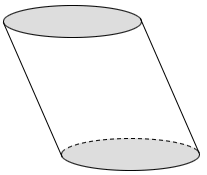Parallel planes
Parallel planes are planes in space that never intersect.
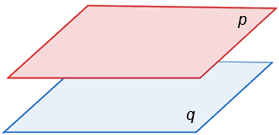
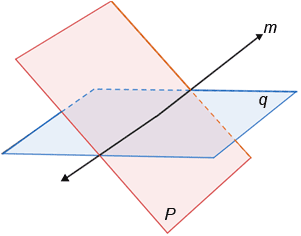
Distance between parallel planes
The distance between two parallel planes is the length of any line segment from one plane to the other plane that is perpendicular to both planes.
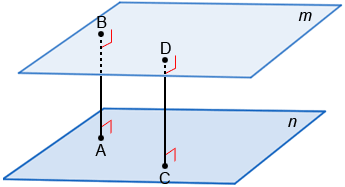
There are infinitely many line segments perpendicular to two parallel planes. Line segments AB and CD are two of those perpendicular segments shown above. The length of either line segment measures the distance between planes m and n. Any line segment perpendicular to both planes is also the shortest distance between the two planes.
Lines in parallel planes
Lines in different parallel planes will never intersect since the parallel planes never intersect. However, just because two planes are parallel does not mean the lines contained in them must be parallel to each other. There are two types of lines in parallel planes: skew lines and parallel lines.
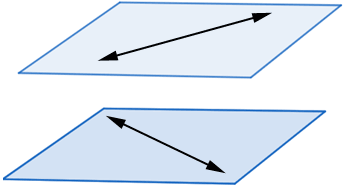
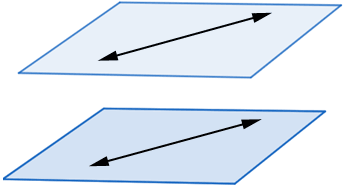
Multiple parallel planes
If two planes are parallel to another plane, all three planes must be parallel.
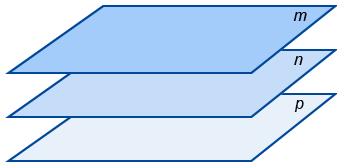
Plane m is parallel to plane p and plane n is parallel to plane p, so by the transitive property, planes m and n are parallel to each other, making all three planes parallel.
Geometric solids
Solid objects studied in geometry often have parallel surfaces.
If a polyhedron is a prism, it can be identified by its two congruent faces, called bases, that lie in parallel planes.
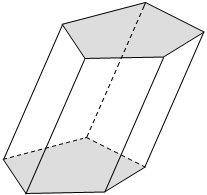
A cylinder is not a polyhedron, but it is a geometric solid whose bases lie in parallel planes.
